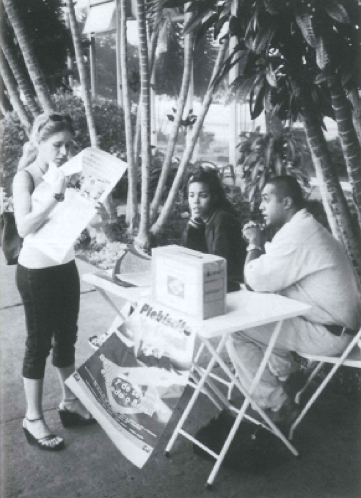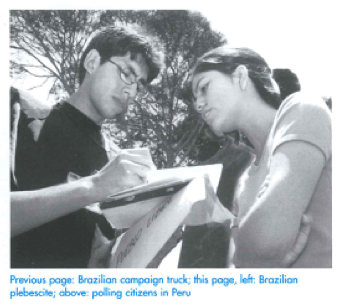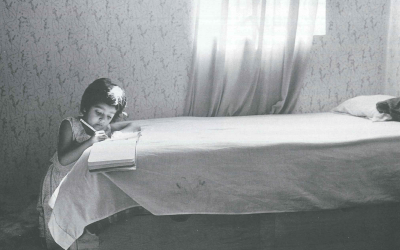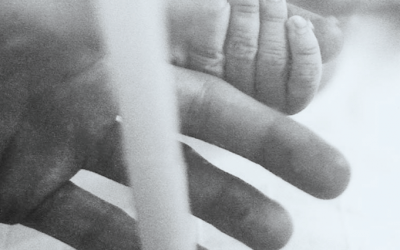Democracy in Latin America
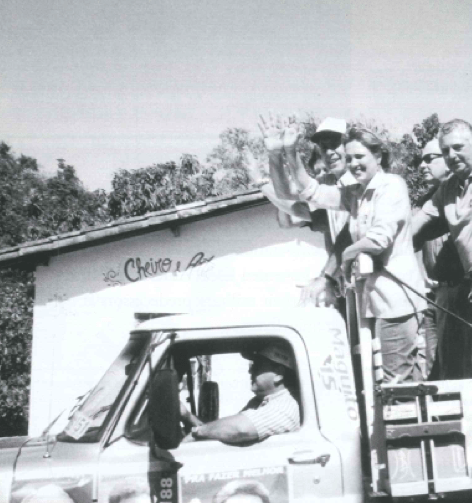
Democratic institutions are facing stress throughout Latin America and experiencing serious challenges in some countries. The public has had little confidence in political parties and Congress for many years in most countries. General support for democratic regimes and satisfaction with their performance weakened at the beginning of this decade. Public support for incumbent presidents has oscillated more widely but, on average, it has also been low. Latin Americans are grumpy about their democratic political institutions.
They have reason to be. Millions of Latin Americans live in poverty. The terrible economic decline of the 1980s significantly increased the number of people in poverty. Episodes of economic calamity in the 1990s slowed down or reversed progress in poverty reduction. The quality of public education is woefully deficient in most countries; Latin American students perform less ably than their peers in various international tests administered in schools. Corruption plagues many public institutions. “Political vision” is not the phrase that comes to the lips of citizens of many countries in the region when they comment on the quality of public leadership.
And yet, Latin Americans ought to be proud of the demonstrated capacity of their democratic institutions to solve significant problems and out-perform the record of dictatorial regimes. Much of the legitimate unhappiness with government performance results from understandable impatience. Long-standing problems have yet to be addressed successfully, but it would be wrong to think that democratic institutions have been inept problem solvers. Two countries encountering particularly stressful times today should take note of their own histories: Argentina and Venezuela. Both countries are undergoing severe turmoil that strains the social fabric, threatens democracy’s survival, injures economic performance, and hurts individual human beings. Each had elements of turmoil in their respective histories. Each failed to solve its problems through undemocratic means. Each performed more effectively through democratic means.
Consider Venezuela in the late 1950s and early 1960s. Military presidents, at times harsh dictators, had always governed Venezuela except for an interlude in 1945-48. Unaccustomed to democratic practices, Venezuelans seemed ungovernable in the early 1960s. There were repeated military coup attempts. There was substantial political violence associated with university students but also, increasingly it seemed, with other sectors of society. Land invasions in the countryside undermined landlord property rights and alarmed owners of wealth. In the late 1950s, U.S. President Dwight Eisenhower was personally unhappy with, and disinclined to help, Venezuela’s new president, Rómulo Betancourt. The Kennedy administration switched gears and increased its support for democratic Venezuela but the Cuban government began to support left-wing insurgencies, eventually becoming a principal source of strength for guerrilla insurgents.
Democracy proved effective in addressing many of Venezuela’s problems. The armed forces became subordinate to civilian authority. Empowered with the legitimacy of a democratic state, military and security forces defeated insurgencies in the cities and rural areas. Political negotiations—democracy’s trump card—brought guerrilla insurgency to a close by the end of the 1960s. Democratic Venezuela carried out a land reform, massively expanded its educational system, developed its health care institutions, and in other ways improved the quality of life of ordinary Venezuelans.
Now consider Argentina in the late 1980s. The value of its currency was worthless. Inflation rates were extraordinarily high and seemed ready to accelerate further. Incumbent President Raúl Alfonsín, architect of the democratic transition from a cruel and disastrous military dictatorship, had lost credibility as a manager of the economy. Support for legislative and judicial institutions had plummeted. Acts of individual desperation were not uncommon. Military mutinies broke out repeatedly during the second half of the 1980s as officers lashed out, disgruntled over eroding pay, inadequate working conditions, and fear of prosecution for human rights violations. The governing Radical Party, though dating its roots to the nineteenth century, seemed about to be killed by angry voters in the forthcoming national elections. Argentina’s most probable next president seemed to be a Peronist wild man, a populist of the worst sort, loathed by the nation’s elites, feared by international investors and international financial institutions.
Democracy proved effective in addressing many of Argentina’s problems. At first, the “wild man” who had become president, Carlos Menem, acted if he had believed what a number of politicians, policy analysts, and academics had been writing. It was nearly impossible, some said, to simultaneously democratize the country’s politics and enact “tough love” market-oriented reforms. Only a democratically elected president, yes, but one who acted as if all public powers had been delegated to him would be able to enact those difficult reforms constitutionally. Like a good pupil, Menem issued a blizzard of decrees, commanding markets to behave as he wished, to no avail. What did carry the day was Menem’s subsequent re-discovery of the utility of democratic institutions and procedures, in partnership with his new, bold, and courageous Economy Minister Domingo Cavallo.
The key diagnosis about Argentina’s ills was simple: Economic malperformance was a manifestation of something even more serious, namely, Argentines did not trust their government. Nor did international investors, institutions, or the governments of other countries. Democracy, however, has a possible solution to that generalized lack of trust in governing institutions. Politicians should act not alone but through public institutions, not through decrees but through laws, embracing political parties as bargainers and mobilizers of support, instead of shunning them. Argentina’s Convertibility Law—controversial in its economic features (especially a decade past its enactment)—was extraordinarily effective in the early 1990s. It may have succeeded at least as much because it was a law as because of its economic content. It was an act of Congress, publicly and broadly supported by Peronist politicians, who collectively—in the executive and the legislature—agreed to self-binding procedures as a key guarantee regarding exchange rate and monetary policy. It was the transparent public evidence of collective engagement, of shared leadership, through democratic procedures that saved the day. Democracies can make more credible commitments regarding the economic future than can single individuals, even presidents and economy ministers if they act alone.
In contrast, the principal other remedy to Latin America’s ills has failed time and again: military coups. In the name of prosperity and order, and sometimes anti-communism and Christianity, military rulers have suppressed public liberties, violated judicial procedures, repressed social action, jailed opponents, and in some countries committed vile acts of torture and murder. In addition, in the 1970s and early 1980s, Latin American military rulers throughout the region demonstrated that they believed in equal opportunity ineptitude. Virtually everywhere, military dictatorships grossly mismanaged the external debts of their countries, tolerated and at times widened already abysmal public deficits, authorized pharaonic projects that wasted public resources, and presided over a boom in corruption. Some military rulers—in Argentina, El Salvador, and Guatemala in particular—led their countries to international or internal war or both, with disastrous results to life, liberty, and property. Business elites gradually discovered that, despite the headaches that democracies often produced, they and their firms would perform better in democracies. And in countries as disparate as Brazil, Peru, or El Salvador, business elites became the partners of surprised democrats from the political center and left.
Some military governments, however, had excellent public relations agents to burnish their credentials as economic managers. General Augusto Pinochet’s Chile was one of them. His government did undertake economic measures that in the long run served Chile well, though at human and social costs among the highest in the Americas. Yet the Pinochet government’s economic record was less successful than his apologists have claimed. For example, the Chilean government’s mismanagement of the 1983 debt crisis was among the region’s worst; gross domestic product per capita plunged faster and deeper in Chile than in any other Latin American country of roughly comparable size. Moreover, it is true that the Chilean economy under Pinochet eked out an economic growth rate per capita slightly better than one percent per year in the 1980s, when most Latin American countries showed negative numbers. And yet, democratic Chile since 1990 has grown at a rate four times faster than the record of Pinochet’s 1980s, the better of his two decades in power. Democratic Chile’s record of respect for public liberties, encouragement of democratic processes, improvement in education and health services, and reduction of poverty is also vastly superior to that of Pinochet’s Chile.
Democratic institutions often worked best when circumstances seemed least propitious as in Venezuela in the 1960s or Argentina in the early 1990s. Consider also the Dominican Republic. Many of its people are poor. Autocrats have governed them most of their history. In the second half of the 1990s, a fiasco seemed in the making. Leonel Fernández was elected president notwithstanding his lack of experience in holding high office. His political party was a rather small minority in both chambers of the Dominican Congress. Strong and disciplined partisanship marked public life and seemed to ensure gridlock. Dominican public institutions were weak, the public skeptical. Stronger, more developed Latin American economies tumbled all around it—Mexico’s financial panic and deep economic recession in 1995, Brazil’s financial panic in 1999, Argentina’s inability to come out of recession in the late 1990s.
The Dominican Republic was Latin America’s champion economic performer of the second half of the 1990s. It hitched its star to a growing U.S. economy more effectively than its presumably savvier and more developed Latin American neighbors. Among the factors that accounted for this success was the need for Dominican politicians to work more publicly and transparently than hitherto in the nation’s history, approximating the rule of law, because Congress and the presidency were held by rival parties. Yes, Dominican public institutions remain weak. Yes, there are instances of mismanagement and corruption. But Dominican politicians during the second half of the 1990s out-did their country’s history, creating conditions of stable credibility such as Dominican citizens had never known. They and international investors made the economy grow. Under President Hipólito Mejía, whose party has ample margins in both chambers of Congress, the Dominican economy this decade has continued to out-perform most Latin American countries.
In the late 1990s, democratic Brazil’s performance was also noteworthy. Brazil survived relatively unscathed from the widespread East Asian financial panic in 1997 and the Russian financial panic in 1998. It did so because President and Congress worked credibly and effectively to enact measures to address economic problems and thus to demonstrate that Brazil’s will to succeed was not just the wish of its talented president but also the collective desire of its wider political community. Brazil stumbled in early January 1999, falling into a short-lived financial panic, when the Governor of Minas Gerais announced that he would not honor the state’s debts to the federal government and when members of Congress began to behave as if—with substantial public backing from the International Monetary Fund—they could fail to enact laws that were still essential to ensure the economic future. Brazil emerged relatively quickly from that economic crisis precisely because a workable majority in Congress returned to cooperative and responsible economic behavior.
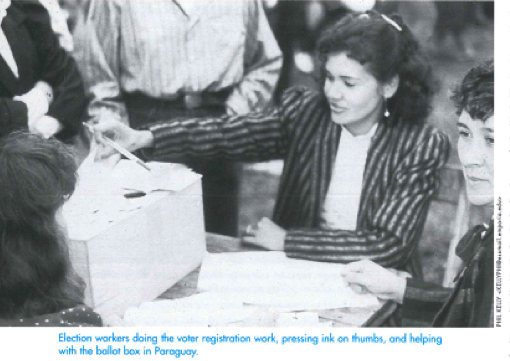
Today some on the Latin American political Left bad-mouth democratic institutions as moving too slowly to address problems of poverty, poor education, and lack of health care. The Left should remember that the most likely alternative to democratic regimes would do even less to address those problems and would probably start by repressing the Left.
Today in some countries, honorable democrats support military coups in order to save democratic institutions. What a sad oxymoron! Military coups against constitutionally elected presidents—even bad presidents—weaken public liberties, fracture the texture of civil society, require the violent repression of supporters of the ousted regime, fan social-class warfare, and make it much less likely that a civil future can be built.
Today some on the Latin American political Right are tempted to support military coups in order to safeguard property rights. The association of military dictatorship with the economic rights of the already powerful is likely to weaken the bonds of political consensus that are a much surer long-term guarantee of property rights. The substitution of the rule of the gun for the rule of law never serves property rights well in the long run.
Today some international investors fret over the possible election of some new alleged “wild man” to the presidency in one Latin American country or another. It is wise to remember that Leftists or populists such as Fernando Henrique Cardoso or Carlos Menem did more to set their economies right and set the foundations of prosperity than the mossback losers that international investors seemed to prefer over them earlier in time. At times the political Left can more credibly commit the nation to market-rules in the long run: If the Left supports such rules, the Right will as well. In contemporary Latin America, the political Left may even be the partner of choice to negotiate a Free Trade Area of the Americas, for the Latin American Left is more likely to agree and to adhere to those labor and environmental clauses that a majority of the U.S. Congress is likely to demand for free-trade-treaty ratification.
The recent history of Latin America shows that the politicians of the democratic Left and the democratic Right can and have governed Latin American countries more effectively than their military predecessors at much less cost to public liberties. Today the challenge in Latin America is to remember a simple point: This often troubled and hard-to-govern region performs better for its citizens and the world beyond its borders under democratic institutions and the rule of law. It is time to recall, celebrate, and defend Latin America’s effective democratic institutions.
Fall 2002
Jorge I. Domínguez is Clarence Dillon Professor of International Affairs and Director of the Weatherhead Center for International Affairs at Harvard University. He is the author of many books, including Democratic Politics in Latin America and the Caribbean (Johns Hopkins University Press).
Related Articles
Editor’s Letter: Democracy
Ellen Schneider’s description of Sandinista leader Daniel Ortega in her provocative article on Nicaraguan democracy sent me scurrying to my oversized scrapbooks of newspaper articles. I wanted to show her that rather than being perceived as a caudillo
Battro Named to Pontifical Academy
Antonio M. Battro M.D., Ph.D. has been named to The Pontifical Academy of Sciences, the oldest science academy in the world, established by Galileo 400 years ago. Battro, Robert F. Kennedy…
Entre los panales y el poder
Cuando Jacqueline van Rysselberghe fue informada en Noviembre último que ella debería dejar su puesto como alcaldesa de Concepción, una de las ciudades mas grandes e…

